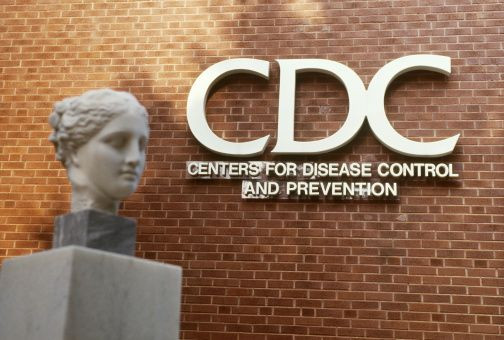What Is Cyclosporiasis? Food-Borne Parasitic Infection On The Rise In US

The Center for Disease Control and Prevention (CDC) issued a warning Monday about cyclosporiasis following a sudden increase in the number of cases of the food-borne parasitic infection this summer.
According to a report by the CDC, there were 206 cases of cyclospora infections reported from May 1 to the beginning of August. This is said to be a 134 percent increase from the 88 cases reported over the same period last year.
"The numbers from this year were probably not outside the range that we've seen for the last five years," Dr. Monica Parise, director of the CDC's Division of Parasitic Disease and Malaria, told CNN. "Even so, we put out this notice because the more complete the case reporting we can get, the easier it will be to figure out why this is happening."
According to the CDC, the infection is usually caused by ingestion of food or water contaminated by feces of those already infected by it.
It can get into your stomach, for example, when a restaurant worker infected by parasite cyclospora does not wash his or her hands adequately after using the toilet and touches the food that you eat.
Read: What Is Norovirus? Chipotle Closes Virginia Restaurant After Outbreak Of Contagious Virus
In the U.S., past cases of the infection were linked to imported produce like fresh pre-packaged salad mix, raspberries, lettuce, basil, snow peas, and mesclun greens, according to the website Invisiverse.
Symptoms of cyclosporiasis include diarrhea, watery stools, nausea, bloating, loss of appetite, weight loss, cramping, and gas. The symptoms may start appearing anytime between two days and two weeks after ingestion of the contaminated food and may persist for a week. However, some may not experience any symptoms even after getting infected.
However, according to the website of Mayo Clinic, if you have HIV or other conditions that affect the immune system, cyclosporiasis can last for months if proper treatment is not administered.
Tests to confirm the infection include ova and parasite examination, molecular methods, and a gastrointestinal panel test.
Cyclospora parasites are usually not killed by disinfection or sanitization; according to the CDC, avoiding food or water contaminated by feces is the best way to prevent the disease.
This can be done by steering clear of water and food from places where an outbreak has been reported.
Read: What Is Rat Lungworm Disease? Deadly Brain Infecting Parasite Found In Florida
Anti-diarrheal medicine taken after consultation with a healthcare provider may help reduce diarrhea. If the illness is not cured by the body’s immune system and lasts for more than a month, standard treatment options include administering antibiotics. Options for those who do not respond to this treatment have not been identified yet, according to the CDC.
"Because cyclospora is a challenging parasite to work with, we don't have any other specific advice that we can give on it until more research has been done," said Dr. Parise.
The CDC also advised physicians to be on the lookout for the disease, and consider ordering a test if they suspected someone to be infected.
© Copyright IBTimes 2024. All rights reserved.





















